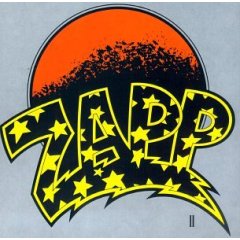Reception
From contemporary reviews, Chip Stern of Rolling Stone , borrowed the styles of George Clinton, but that Zapp have "subsumed the "rap" to the dictates of the rhythm section – a twangy cubist mélange of rhyme, dance time and choruses of synthesized voices. No one's going to mistake this singing for that of the trendy syntho-pop bands" and declared it superior to their first album. [6] Stern recommended the album "For those who find the Sixties section of their record collections more danceable than the superficial R&B; of today, Zapp is a smart, brash alternative." [6] Ken Tucker of The Philadelphia Inquirer gave the album a five out of five star rating, noting that Roger Troutman has "managed to make his languid funk style sound devilshly sexy and urgent on [Zapp II]", declaring the album to be "the party record of the month". [5] Robert Christgau gave a positive review writing in Christgau's Record Guide: The '80s (1990), "— unlike its predecessor it is a real dance LP--side one will function your ass off. And you'll want to play "Playin' Kinda Ruff" again." He did however feel the album lacked some way in content saying, "This idly functional, playfully mechanical six-cut dance LP tested my tolerance for innocent mindlessness, especially after I realized that my favorite tune appears on both sides." [4]
This page is based on this
Wikipedia article Text is available under the
CC BY-SA 4.0 license; additional terms may apply.
Images, videos and audio are available under their respective licenses.
